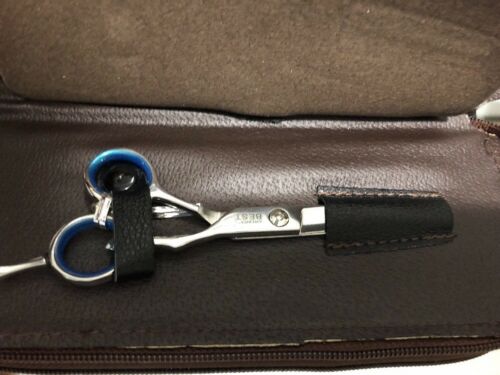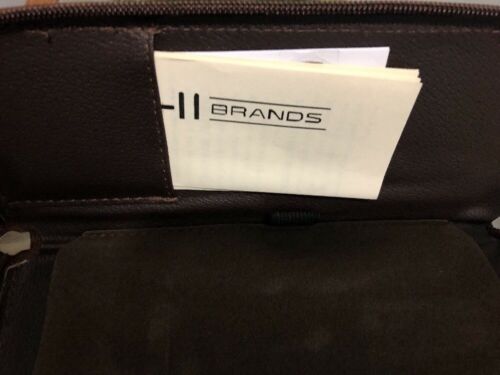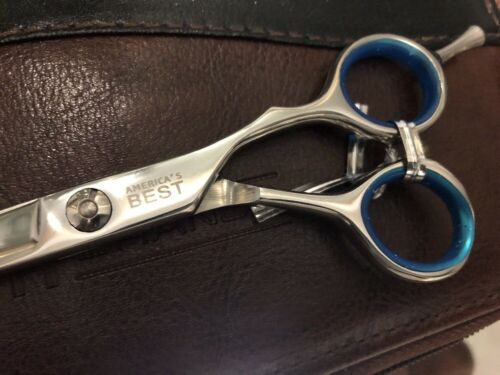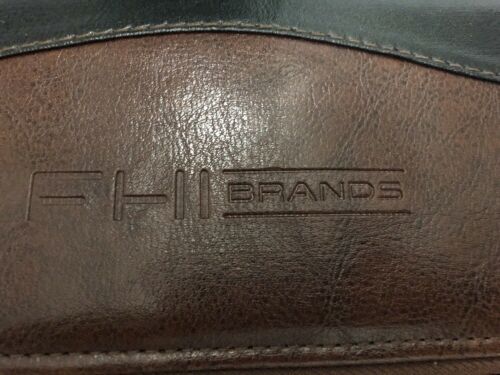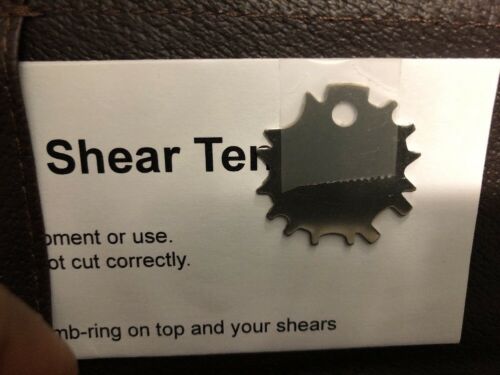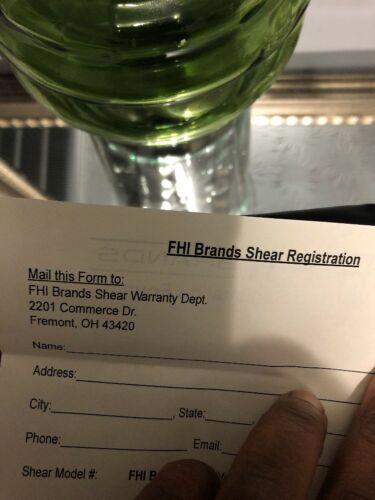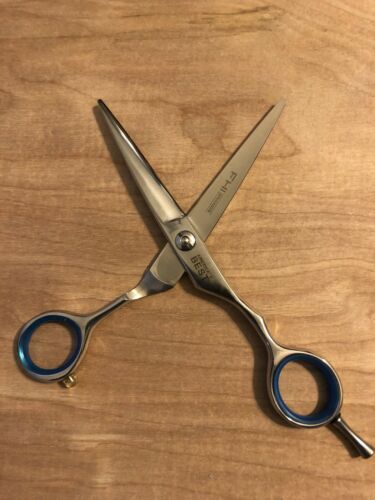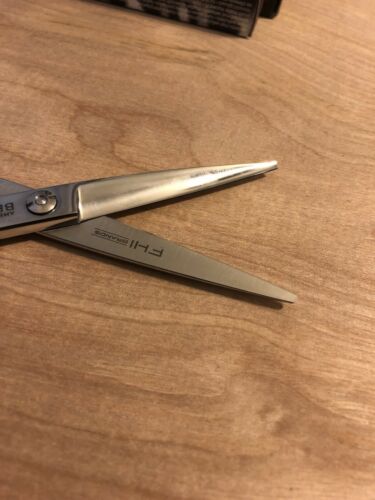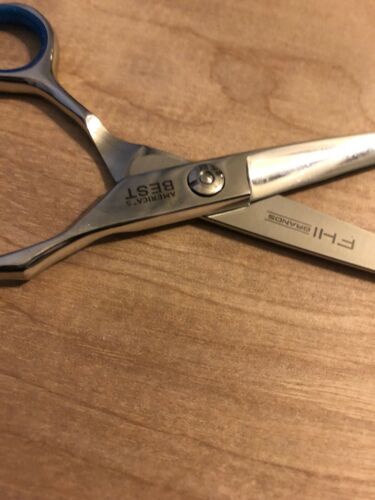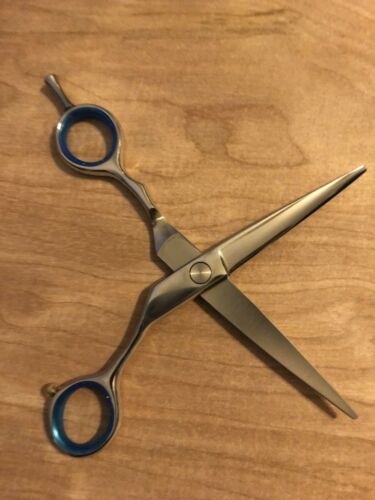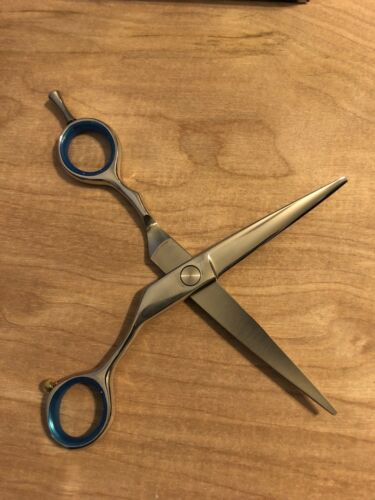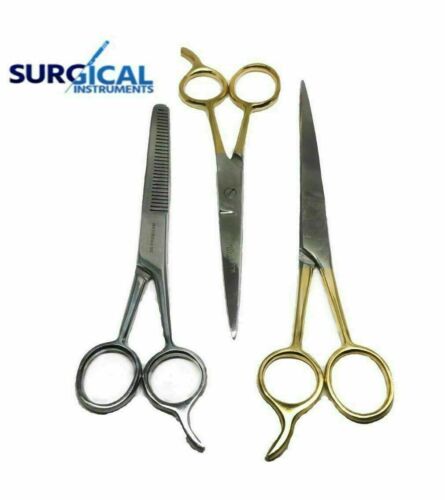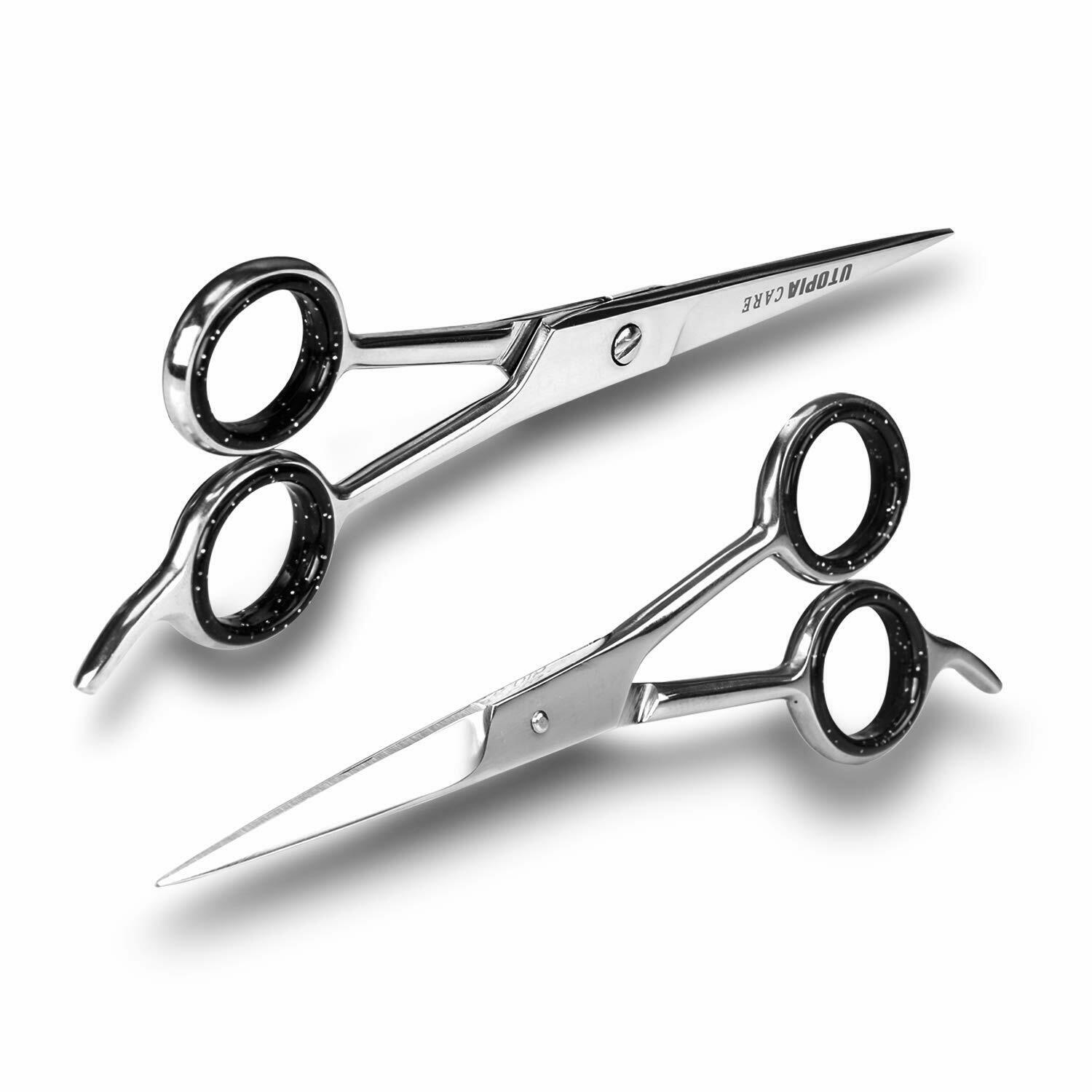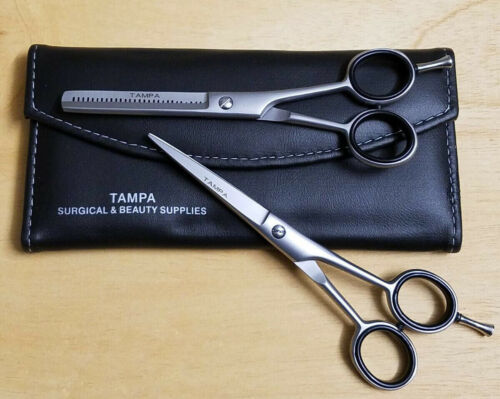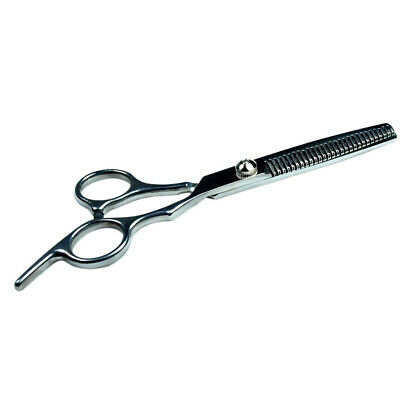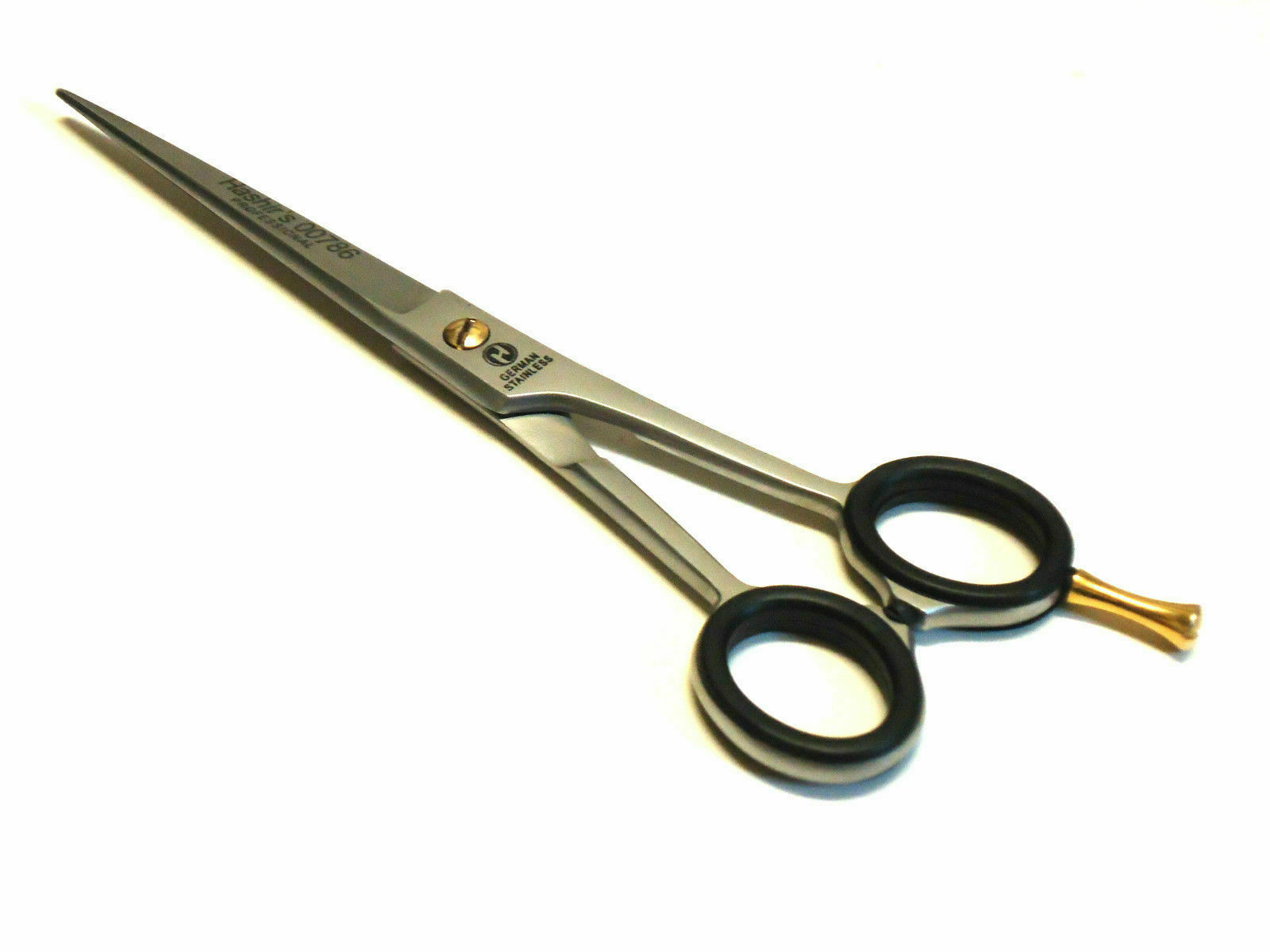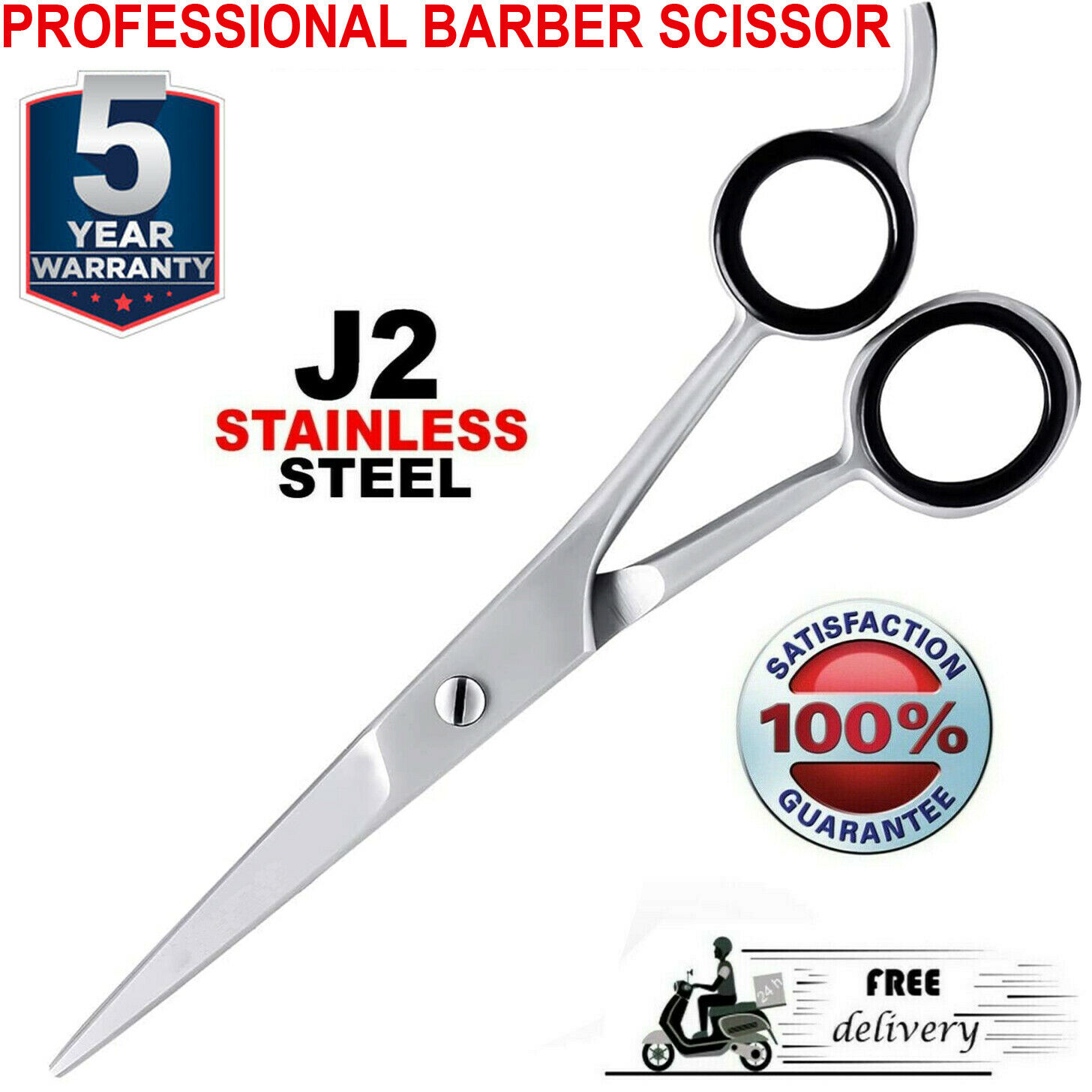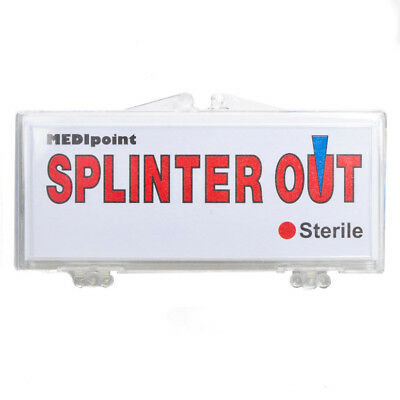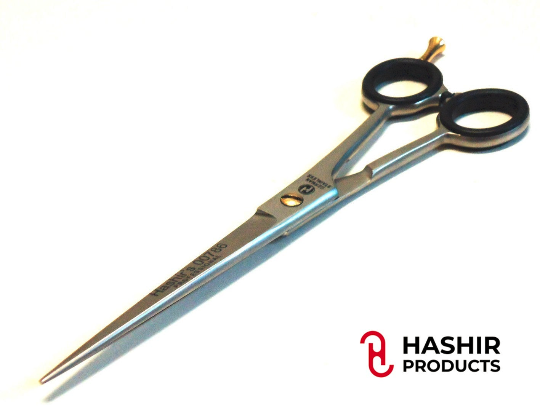-40%
FHI Brand ~Stone Damascus Japanese Shear Scissors 5.5 Inch New With Papers
$ 14.78
- Description
- Size Guide
Description
The KORE line of professional shears includes six series comprised of the finest steels; Cobalt, Stainless, and Damascus. Our new line of shears are versatile, ergonomically designed for ultimate comfort and performance and handcrafted with superior Japanese quality to last a lifetime.These are very sharp shears that require professional knowledge. Retail : 9.00 very limited stock
Please let me know if you prefer Left or Right shears
Manufacturer: FHI Heat 440c
Package Dimensions: 10.5 x 4.6 x 1.9 inches
Shipping Weight: 4 ounces
ASIN: B01BWJMJE2
FHI Heat was founded in 2003 and transcended into a world-renowned Professional Hair Care Company that creates the highest quality and technologically advanced hair tools in the beauty industry.
2008
In my resent search for a new pair of cutting shears, I came to the realization that I know next to nothing about hair shears other than what my rep from my local distributer tells mer. So, I decided, that like in all other areas of the hair biz, if I'm going to be a good stylist, I should educate myself about my tools. Below is the information that I've come by and thought I would share, while it is by no means comprehensive guide to all types of steel and shears, it is a good general rule of thumb to follow when trying to sort out what shears to purchase and why. This guide is kind of long so grab a drink and enjoy.
Types of Stainless SteelThere are basically two types of stainless steel alloys used in making hair shears: 440 and 420, also called J2. The main difference between the two is the amount of carbon versus the amount of chromium in the alloys make up. Carbon gives the steel toughness, while chromium gives a natural resistance to stain and rusting.
440 steel aka cutlery steel comes in three grades: A B and C .
While all three grades are resistant to rusting they break down in level like this:
440 A has the lowest Carbon vs Chromium, very rust resistant but not as strong. Most shears marked with a plain 440 on the back are probably made out of this, since it is the cheapest of the three.
440 C has the highest carbon content and is considered the strongest of the threes steals and also the most expensive. Generally shears made of this type of steel will be marked on the back since it is a sign of its quality.
440 B As you can probably guess, falls in between these two.
420 or J2 steel
I have found sellers claiming that there J2 steel is 440 steel on E bay, under the guise of J2-440 stainless steel. My research has lead me to believe that this type of steel does not exist. J2 is a specific type of type of 420 steel that has almost no carbon to speak of in it's make up. It makes it very soft and very rust resistant. This is why 420 steel is also known as surgical steel, because the softness of the steel allows it to be sharpened to a a razor edge, which is ideal for surgery. After a procedure it can be sanitized and resharpened easily.
Rockwell Hardness Rating
With the types of steel out of the way, we can get down to Rockwell Hardness.
What is it?
The hardness rating determines how easy it is to dent the steel with a diamond tip. The higher the rating the harder the steel and the heavier the shear. Hair shears generally fall between a rating of 48 - 62 depending on the type of stainless steel used and the heat treatment given to the steel. I'm not going to get all in depth about the different treatments, but just know that the same piece of stainless steel can have a different hardness rating depending on the type of heat treatment used during it's creation. 440 steal can end up with a hardness anywhere from 55 - 62 depending on the carbon content. 420 steel is sometimes heat treated, sometimes not and can obtain a hardness of up to 55. I'm sure you have noticed different sellers will claim a hardnesses harder than this for their shears. I'm not sure how this is possible since hardness in stainless steel is linked to the carbon content and 420 stainless steel as I said before is very low in carbon. I've emailed and asked questions but haven't received replies from any of them.
What's the big deal?
Different hardnesses will have different effects on exactly how sharp the edge of the blade will get and how long it will retain that edge. A blade with a 52 hardness will get a much sharper edge than a 60, but conversely it will loose that edge much quicker than the 60. There really isn't a standard hardness for shears, you will find they run the gambit, some companies might use a 58 for their shears, another might use a 61. Don't allow a seller to lead you to think that a steel with a 60 hardness is a higher quality then a 56, again its all in how sharp you want the shear to be and how well crafted they are. Remember when cutting the hair the sharpness of you shear is almost as important as the cutting technique you are using; dull shears will bend and break the hair, rather than cut it. I've noticed buyers leaving negative feedback for sellers claiming the shears they received are not sharp and the sellers reply that the shears are in fact very sharp. So who is right? Both of them more than likely. A buyer who is used to a shear with a Rockwell C hardness of 56 is probably not going to be all that pleased with a shear with a hardness of 60 or higher. The steel is not capable of getting the sharp edge they are used to, so yes the shear will seem dull to them. The seller is not lying when they say the shear is sharp; it's probably as sharp as shear with that hardness is going to get. One more thing to keep in mind, the harder the shear, the more brittle the steel. A shear with a 60 hardness is more likely to chip or go ragged than a shear with a hardness of 56; the more carbon in the blade, the less give the steel has. Chips in shear blades are not fixable, if it chips you have to get a new pair; be very careful with shears that are that hard.
What's the big deal about Japanese shears, steel, or whatever?
The Japanese introduced the convex blade and new types of steel to the industry, basically changing the way everyone thought about shears. So don't be surprised if people try and sell you something by attaching the word "Japanese" to the beginning of it. It does not mean that any part of your shear has been in Japan or been in contact with a Japanese craftsman. What it does mean, or better yet, what it SHOULD mean, is that techniques introduced by the Japanese were used in the crafting of your tool. Whether it was crafted in Korea, China, or Pakistan is another matter entirely. Actual Japanese shears are very expensive for many reasons. Please realize that not only are the Japanese renowned for the craftsmanship of their shears, but these craftsmen are paid a much higher wage than their foreign counter parts. This all goes into the final price of your shears. As an industry that deals with people and their well being on a daily bases, I think we should take a good look at where are tools are coming from and how well the people making them are being compensated for their work. I am willing to pay more for a pair of shears if I know that the people at the beginning of the process are being paid a living wage. Some of you may agree, some of you may disagree, but enough with the preaching and on with the Guide.
Titanium or not to Titanium that is the question.
Titanium coated shears seem to be all the rage on E-bay these days. I bet your asking yourself whether it's worth it, does it really add anything to my shears? Well, yes and no.
Titanium coating sellers claim that it will help your shear get a sharper edge, holds the edge longer and lengthen the time between sharpenings. The first part is true. The wearing away of the titanium layer forms micro-serrations that can only be seen under a microscope, these serrations are what give the shear it's added cutting ability. There is no proof that it will keep the edge longer. Titanium itself is a very soft metal and has to be mixed with other components to get an alloy that obtains a Rockwell C hardness of 50. Most of the titanium coatings on E-bay are one of these alloys. How can you tell the difference? Plain old titanium only comes in one color, GOLD. That's it, nothing else. It's the titanium alloys that allow the wide spectrum of colors you see when exposed to Nitrogen during the bonding process. Which I personally find pretty neat. As long as the quality of the shear is where it should be, I see nothing wrong with adding a little color to it. Makes it fun.
I ran across this article on Ebay
“So what kind of shear do I buy?
There are so many different styles of shears out there it is almost mind boggling at times. What type of handle do you choose? How long should my shear be? Do I need thinning, chunking, or texturizing shears? Should I get a razor? The answers to these questions greatly depend on your style of cutting. I personally break down cutting styles into 5 different types. Mind you these are not industry standards by any means, they are just the way I break down different cutters inside my own head and it may help you determine what type of shears you want to buy. They are:
High Precision Cutters - These are your Vidal Sassoon types. They use one shear to do everything and are very technical when it comes to their hair cuts. Every parting and snip is done to the Sassoon standard. You would be hard pressed to find even the smallest flaw in one of their Master Stylists cuts. There is not a lot of variation from client to client when it comes to a cut. You are probably looking at the standard 4.5 to 6.0 length shear with a Rockwell Hardness of 56 or 58. Soft enough to get sharp edge, but tough enough that you aren't sending them out every other week to get sharpened.
Precision w/ customization - Toni & Guy, Bumble and Bumble, and Rusk cutters all fall into this category. Very precise partings, elevations, layering techniques are used to get the basic shape in to the hair, but after it's in, the shape is customized to suit that client with a variety of tools. Everything from thinning shears to razors will be in your tool box. You will probably choose a standard shear for cutting in your perimeters and layers, but a softer 54 Rockwell hardness which allows a sharper edge for doing slide cutting or slicing only, using this type of shear for perimeter and layer work will dull it very quickly. You might want to try a longer shear, like a 7 inch for you deep point cutting. Be careful with the Tigi Hardcore long shears when you first get them. My old boss cut her entire knuckle off and didn't even notice till she heard it hit the floor when she first got hers. It may take a bit to get used to the extra length if you are not used to it at first.
Freeform Cutters - Some of my favorite types of cutters. Watching them cut is both fun and nail biting for me, I fall into category 2 by the way. These types usually fall into the Paul Mitchell and Matrix schools of cutting. It's about customization from the beginning of the haircut to the end, each cut is a reflection of that individual artist at that point in time. Which makes it really hard to get the same cut twice from them. The shape of the cut and the layering is formed as they go, not necessarily in any specific order. Everything from twirling or teasing the hair can be used while cutting it. Any tool used by category 2 cutters will be used by these cutters.
Fresh out of Beauty School or Haven't Taken a Cutting Class in 20 years - I highly recommend you invest in a good basic shear with a hardness of 58 to 60 and nice set of thinning shears with anywhere from 26 to 30 teeth. Granted they will not be as sharp, but I would personally take whatever money you may have spent on a high end shear and invest it in education. Of course being a hardcore fan of the TIGI cutting system, I'm going to recommend that and/or Rusk. People who are fans of other companies will come up with reasons why you should check out their systems. Basically, you need to find your voice as a stylist and a system that helps you express it to it's fullest potential. If you do this I think you will find your craft much more enjoyable.
The Kitchen Cutters - Whether it's a bang trim or your cutting a friends hair for fun. I would go with a 58 to 60 hardness standard shear. Unless you know how, when and why to use a texturizing and thinning shear, I would stay away from them. Same story with razors. You could end up doing things that you hadn't intended on doing, WHICH ARE NOT FIXABLE.
How do I know if my pro brand shears are the real deal and not knock offs?
This is a tough one. The best I can tell you is research before you buy. I've noticed people selling Kasho shear sets on Ebay very cheaply. When I went and researched the brand, I realized they could not be the real thing because Kasho only sells scissors with removable tangs. Another give away was that the thinning shears in the set looked nothing like any of the Kasho thinning shears available. Something else to keep in mind is that according to section 304 of the US tarrif act all items entering the US must be clearly marked with their country of origin. The rule states:
"The following articles and parts thereof, unless otherwise subject to the marking exceptions provided for in 19 U.S.C. 1304, must be marked legibly and conspicuously with their country of origin by die-stamping, cast-in-mold lettering, etching acid or electrolytic, engraving, or by means of metal plates which bear the prescribed marking and which are securely attached to the article in a conspicuous place by welding, screws, or rivets: Knives, forks, steels, Cleavers, clippers, shears, Scissors, safety razors, blades for safety razors..."
You are well within your rights as a buyer to ask for a clear picture of this stamp from a seller. Any seller who is moving a product into the country without this stamp is in violation of federal law. Use this to protect yourself. If a seller is claiming that the shear you are receiving is from a certain country or is a certain brand and you know where that brand producers their shears, ask to see the mark.
So that's it. Again this is by no means a comprehensive guide to everything about shears, but hopefully it will give tip in the right direction. Always research before you buy check feed back, and no impulse buying! Happy Hunting.
